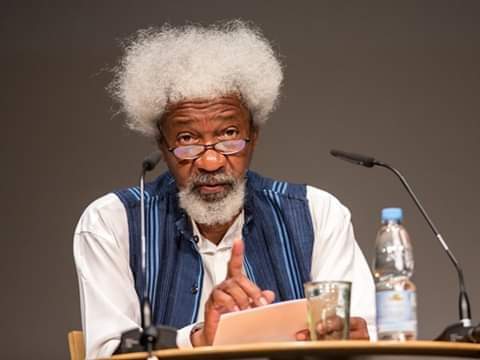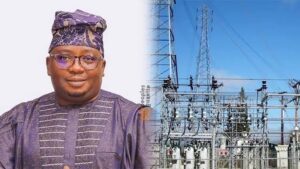
Wole Soyinka, Nobel Laureate, has described the arrest of Omoyele Sowore, presidential candidate of the African Action Congress (AAC), as a replay of the style deployed by Sani Abacha, late dictator and head of state.
Sowore, who has been spearheading calls for a “protest against bad governance”, was arrested by operatives of the Department of State Services (DSS) at his Lagos residence in the early hours of Saturday.
Mohammed Adamu, the inspector-general of police, also said the planned protest being organised under the ‘Revolution Now’ movement is an act of treason and terrorism whose sole aim is to “force a regime change in the country”.
But in a statement he issued on Sunday, Soyinka said Sowore did nothing to suggest he is “urging the public to engage in a forceful overthrow of government.”
He described the activist’s arrest as a “travesty” and violation of the fundamental rights of citizens to congregate and make public their concerns.
“Beyond the word ‘revolution, another much mis-used and misunderstood word, nothing that Sowore has uttered, written, or advocated suggests that he is embarking on, or urging the public to engage in a forceful overthrow of government,” the foremost playwright said in the statement sent to TheCable.
“I therefore find the reasons given by the Inspector-General, for the arrest and detention of this young ex-presidential candidate totally contrived and untenable, unsupported by any shred of evidence.
“This is all so sadly déjà vu. How often must we go through this wearisome cycle? We underwent identical cynical contrivances under the late, unlamented Sani Abacha, when he sent storm-troopers to disrupt a planning session for a similar across-nation march at Tai Solarin School, Ikenne.
“The same pattern Pavlovian conduct manifested itself under yet another supposed democratic ruler who personally declared that the gathering of civilians to deliberate on, and propose a constitution for the nation was ‘high treason’. And yet again, even a faceless cabal under yet another civilian regime refused to be left out of the insensate play of power.”
Soyinka said protests are democratic ways of drawing government’s attention to ills and mobilising the public towards a proactive consciousness of their condition.
He said the arrests, incarceration and threats to civilians involved in such cause are “ultimately counter-productive.”
“Freedom is not so glibly qualified. It cannot be doled out like slops of charity from soup kitchens,” he said, adding: “Let the Police stick to their task of protecting and managing protests, not attempt to place their own meaning and declaration of intent on bogey words like – revolution!”







